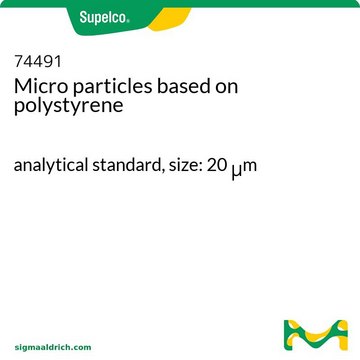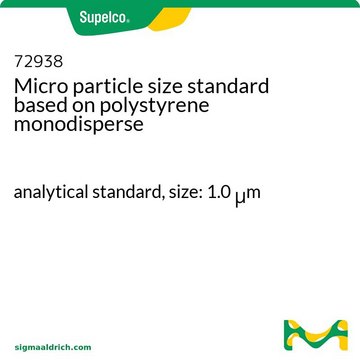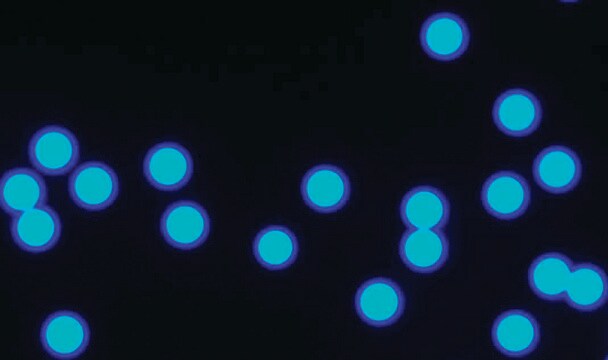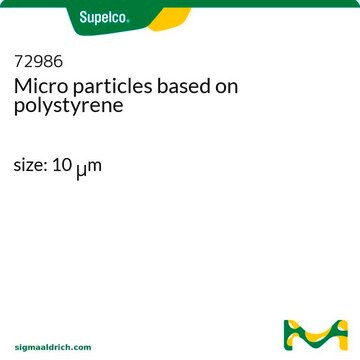95531
Micro particle size standard based on polystyrene monodisperse
analytical standard, size: 30.0 μm
Sinónimos:
Monodisperse polystyrene latex particles (30 μm), monodisperse polystyrene microbeads (30 μm), monodisperse polystyrene microspheres (30 μm), polystyrene monodisperse microparticles (30 μm), Size standards
About This Item
Productos recomendados
grade
analytical standard
Quality Level
form
aqueous suspension
particles
crosslinking
2 % cross-linked
concentration
2% (solids)
particle size
30.0 μm std dev <0.5 μm, coeff var <2%
application(s)
glass & ceramic
industrial qc
pharmaceutical
format
neat
storage temp.
2-8°C
¿Está buscando productos similares? Visita Guía de comparación de productos
Categorías relacionadas
General description
Application
Monodisperse polystyrene latex particles can also be used to:
- validate the Airy Disc First Fringe (ADFF) analysis technique based on size measurements
- study the size effect of polystyrene microplastics on the sorption of organic contaminants
Features and Benefits
- suitable for routine instrument calibration checks, testing and corrections
- available in 5 mL pack size as a neat sample
Analysis Note
- Transmission electron microscopy (TEM)
- Scanning electron microscope
- Light microscopy
- Coulter™ counter with MDF-system
Legal Information
Storage Class
10 - Combustible liquids
wgk_germany
WGK 3
flash_point_f
410.0 °F
flash_point_c
210 °C
ppe
Eyeshields, Gloves
Elija entre una de las versiones más recientes:
¿Ya tiene este producto?
Encuentre la documentación para los productos que ha comprado recientemente en la Biblioteca de documentos.
Los clientes también vieron
Nuestro equipo de científicos tiene experiencia en todas las áreas de investigación: Ciencias de la vida, Ciencia de los materiales, Síntesis química, Cromatografía, Analítica y muchas otras.
Póngase en contacto con el Servicio técnico












